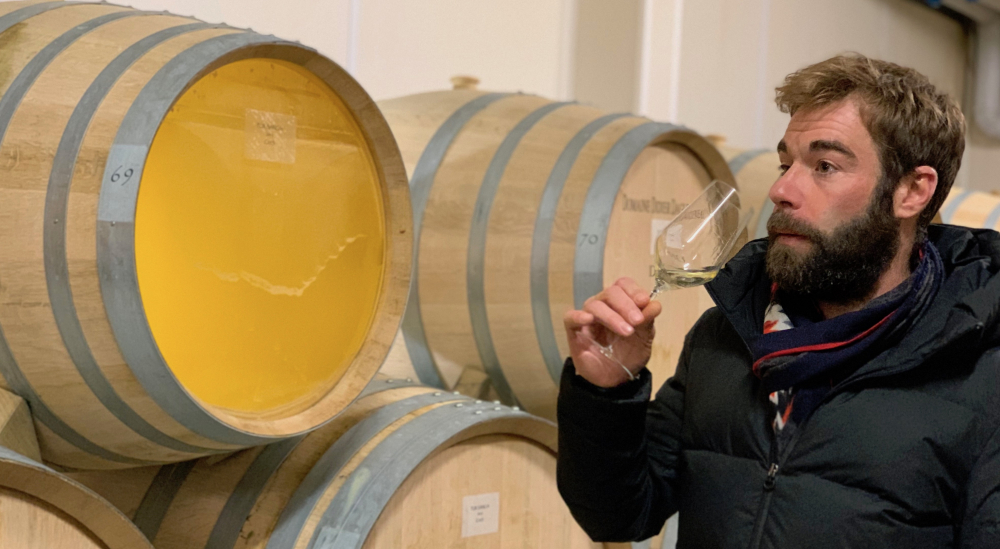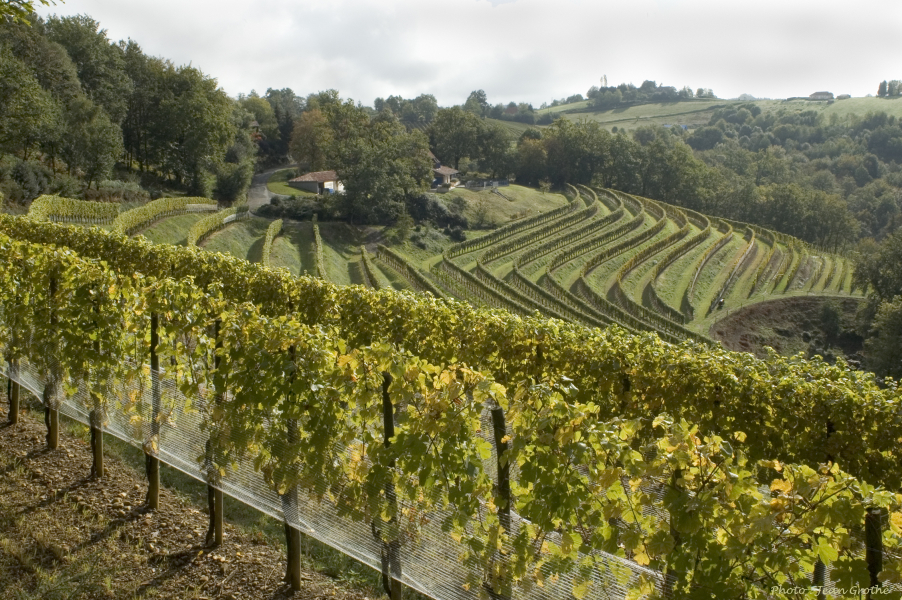Thanks to our friend Michael Sullivan of Beaune Imports for providing much of the below information...
In 2002, Didier Dagueneau embarked on a journey to produce sweet wine. His previous attempts in Pouilly-Sur-Loire, although impressive, had been rare and in the end somewhat disappointing as there is no appellations status for such wines in his home region. He sought out an area that he believed was not living up to its potential, and landed in Jurançon at the foot of the Pyrenees south of Pau. Here, just outside the village of Aubertin, he found a few hectares located in a natural amphitheatre facing a spectacular panorama of mountains. The vines were in good shape and it took only minor changes in the vineyards for Dagueneau and the Petit Manseng to adapt to each other. He set about having his machinist friend adapt a couple of small, lightweight tractors to work in the terraced vineyard, and installed his lifetime friend and associate Guy as the vineyard manager. Didier's approach was to produce wines that bring out the natural minerality of the soil and have, above all else, balance, harmony and longevity. Today, his son Louis-Benjamin carries on this tradition. The relative sweetness of each vintage is secondary to the balance of acidity, texture and richness of fruit, and the wines are never be chaptalised.
As is always the case with Dagueneau, there is a story behind the wine name and label design. When Didier discovered the ampitheatre and panorama of mountains, he was reminded of the story of The Hanging Gardens of Babylon, considered one of the Seven Wonders of the ancient world. They appear in the writings of several ancient Greek and Roman writers (Diodorus, Strabo, and Philo), all of whom were influenced by the Babylonian priest Berose, who wrote of Nebuchadnezaar's construction of these gardens to remind his wife of the mountains of his native country. Unlike other mythical structures in Babylon (now southern Iraq) such as ziggurats, royal palaces, or the Tower of Babel, which were all found through archeology and the translation of ancient inscriptions, the hanging gardens were never found. As a result, many question their existence, while others keep searching. In the meantime, we have Dagueneau to thank for uncovering these majestic Jurançon vineyards and for paying homage to the mythical Hanging Gardens of Babylone by naming the resulting wines Les Jardins de Babylone.

